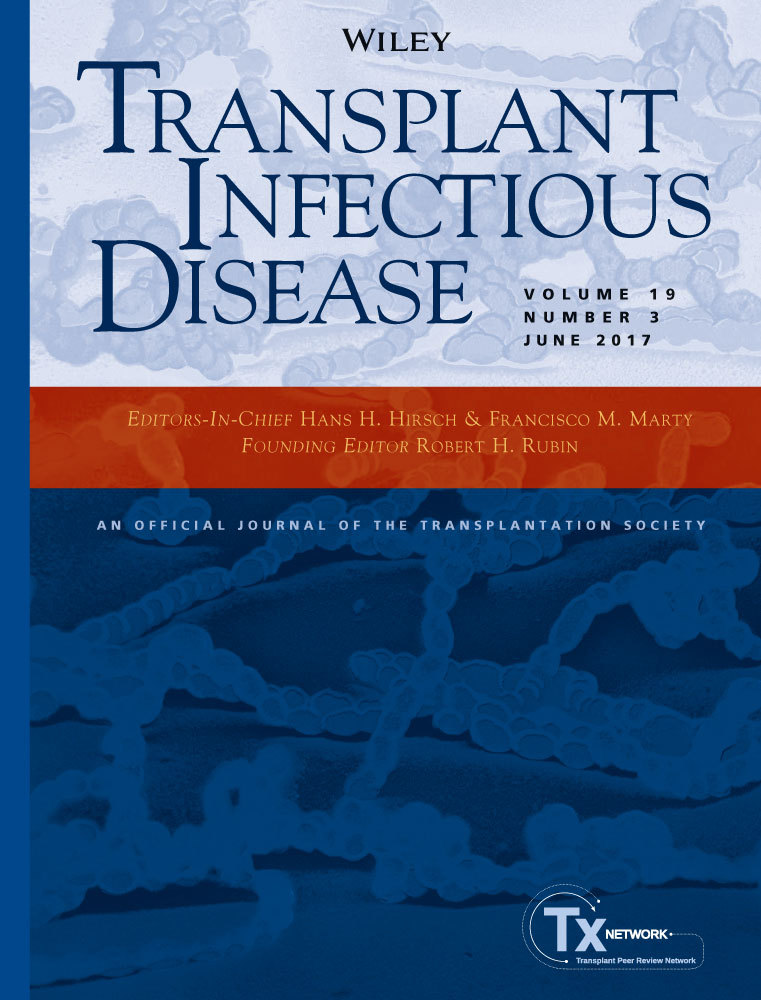Purpureocillium lilacinum tattoo-related skin infection in a kidney transplant recipient
Abstract
Purpureocillium lilacinum is an emerging pathogenic mold among immunocompromised hosts that causes cutaneous infections related to skin breakdown. We present the first reported case of P. lilacinum tattoo-related skin infection, to our knowledge. A kidney transplant recipient recently treated for acute cellular rejection presented with skin papules overlying a tattoo. Diagnosis was confirmed on culture, histology, and 18S ribosomal RNA polymerase chain reaction. The morphological features on culture characteristic of P. lilacinum included violet colonies on malt extract agar, long tapering brush-like phialides, and elliptical conidia attached in chains. P. lilacinum has intrinsic resistance to many antifungal agents including amphotericin B, but voriconazole and posaconazole have good in vitro activity. The patient was treated with voriconazole with subsequent resolution of the papules after 3 months of therapy.




